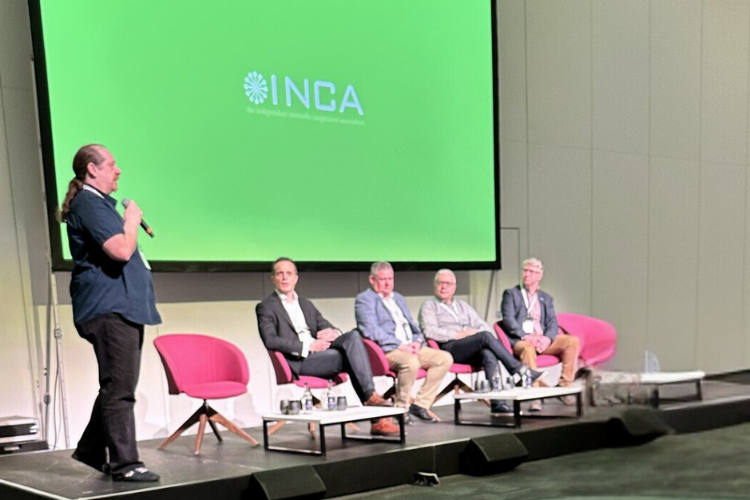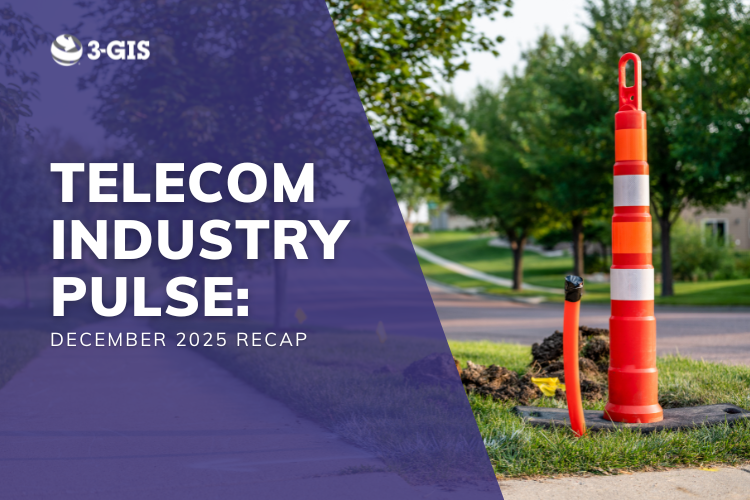As Storm Bert lashed south Wales, disrupting travel and threatening attendance, the Independent Networks Cooperative Association (INCA) Summit 2024 weathered the storm—both literally and metaphorically. Held at the International Convention Centre in Newport, the summit provided an opportunity for the UK's AltNet community to reflect on challenges, celebrate progress, and plan for a future of connectivity in a turbulent industry landscape. Here are some key insights from the summit’s thought-provoking agenda.
Building resilient networks in challenging times
Matthew Hare, CEO of Zzoomm, set the tone in the opening keynote with insights into how building fibre networks is a high-capex, low-opex business. His extracts from the Megabuyte Quarterly Insights Report Q4 2024 included:
- Investment crunch: AltNet funding has significantly declined since 2022, creating headwinds for ambitious rollouts.
- Take-up opportunity ahead: Customers of incumbent operators are steadily shifting toward AltNets, buoyed by better offerings.
- Financial pressures: Building networks with debt remains challenging, with unattractive financial terms.
All AltNets, even the top performers in terms of customer count, shared familiar challenges:
- Automation of processes needed to support operational efficiencies
- Delivering positive EBITDA and cash flow
- Growing revenues whilst delivering on customer satisfaction
- Revenue variation per customer per month between AltNets remains stark, highlighting the need to optimise pricing and service offerings.
A calm after the consolidation storm?
The next session addressed the hot topic of AltNet consolidation, a theme that has long been discussed over the last couple of years. Here the panel considered and debated the following:
Consolidation pace: Despite perceptions, consolidation has not been slower than expected with several examples cited from the last 18 months. In addition, many operators are reaching customer take-up rates of 20-30%, driving momentum.
Market predictions: The potential emergence of a dominant retail and wholesale provider model sparked debate. However, consensus in the room emphasised keeping the customer at the heart of everything.
Pricing strategies: Contrary to fears of a "race to the bottom," pricing remains stable, with value-added bundles and discounts bolstering competitiveness.
Policy review: Discussions on the Telecom Access Review (recently kicked off by OFCOM and due in 2026) underscored its potential risks and the need for representation from all AltNets regardless of size. The importance of preserving Physical Infrastructure Access (PIA) was also deemed highly important given the transformative effect it has had.
The industry remains optimistic, buoyed by progress through BDUK funding and the promise of closing the UK's fibre coverage gap, now at 72% complete.
Innovate to differentiate
Innovation took centre stage next and revealed the need and opportunity for AltNets to optimise and differentiate.
Digital workflows and automation: Enhancing customer experience and reducing costs with AI, machine learning, and streamlined processes.
Standardisation and interoperability: Significant variations in network builds among AltNets highlight a need for industry-wide standards.
Educating customers: Helping users understand in-home infrastructure needs to meet growing bandwidth demands is critical as TV services move solely online.
Focus on SME’s: AltNets were urged to increase the offering to business customers, expanding their reach beyond residential markets.
INCA was called upon to lead the charge alongside other industry bodies such as NICC and ISPA in fostering collaboration and transparency across the sector, to help further standardisation efforts.
The winds of change
Policy discussions surrounding the newly installed Labour government’s upcoming ‘Statement of Strategic Priorities’ painted a generally hopeful picture of regulatory stability and support.
Key priorities: OFCOM’s regulatory framework, copper switch-off, geographic pricing review, and enhanced business broadband initiatives were framed as key elements of the forthcoming government statement.
Challenges: Addressing wayleaves, levelling the industry playing field, and tackling multi-dwelling unit (MDU) access for fibre upgrades remain pressing concerns.
Stimulating uptake: Beyond rollout, there’s a critical need to focus on post-network strategies, including pricing, services, and customer engagement.
In addition to the above, Openreach’s pledge to achieve 100% full fibre by 2030 and a call for legislative reform to remove barriers to upgrade from copper, highlighted the urgency of overcoming infrastructural bottlenecks.
No community left behind
Conversation moved to the concept of the "final few"—connecting the most remote and challenging premises—a complex and multi-faceted challenge requiring innovative thinking, increased state aid, and perhaps a reconsideration of whether full fibre is the immediate priority.
It was argued that, for many rural customers, the question isn't about waiting for gigabit-capable connectivity but about accessing reliable and sufficient speeds now. A 200 Mbps connection delivered promptly may be more desirable than waiting years for gigabit speeds that are not currently necessary for most applications. Fixed wireless technologies, capable of delivering 400-600 Mbps today, could be a viable solution to fill this gap.
The goal of Project Gigabit should be to future-proof the UK’s broadband infrastructure. This requires prioritising fibre deployment wherever feasible while considering cost-effective alternatives, like fixed wireless, to close the connectivity gap. Whilst no definitive answers were arrived at in this meeting, there was some agreement that the best approach combines flexibility, technology, and funding to deliver connections today with an eye on scalable solutions going forwards.
Clearing skies: The road ahead
As Storm Bert moved on, the INCA 2024 Summit ended on a hopeful note. The AltNet industry has, and still is undoubtedly facing rough weather, but with collaboration, innovation, and a customer-first approach with added service offerings, the sector can thrive amidst the challenges.
Whether it’s securing better financing terms, utilising technology, or helping to shape policy, AltNets are proving they have the resilience to navigate any storm. If the annual summit is any indication, the UK’s digital future looks bright—even when the forecast is cloudy.



